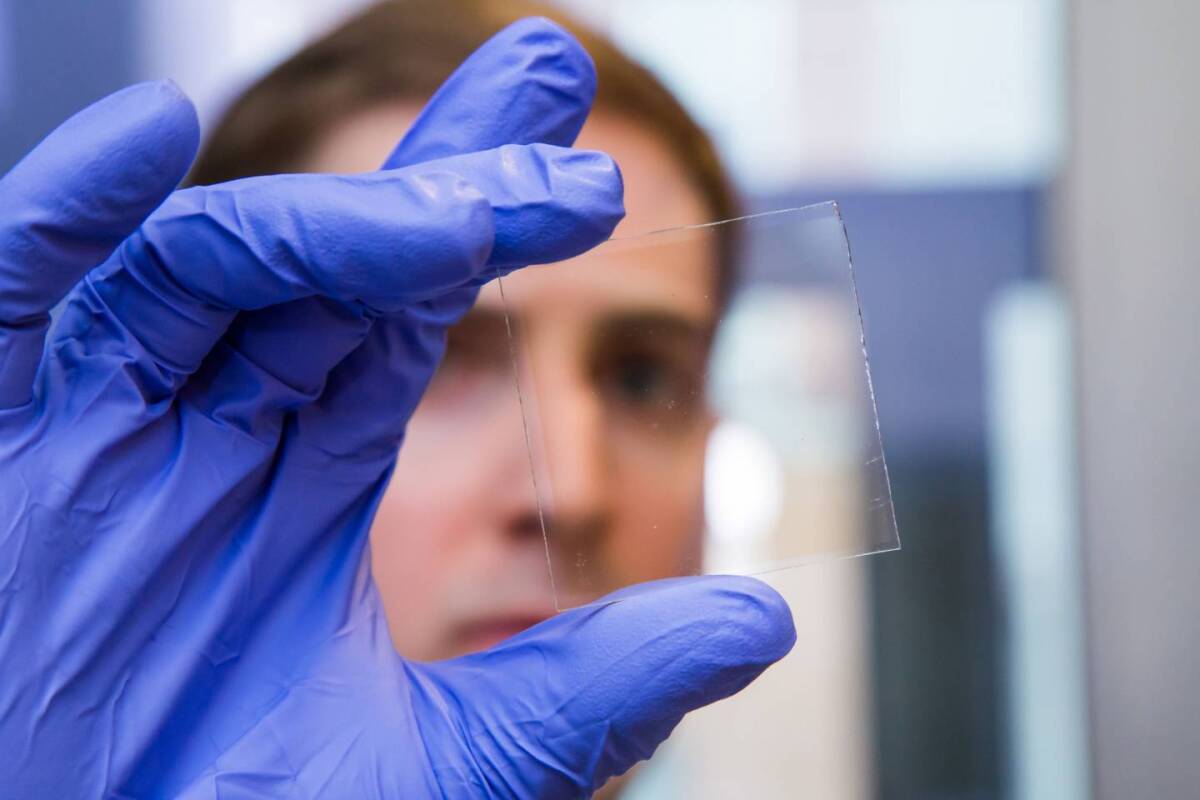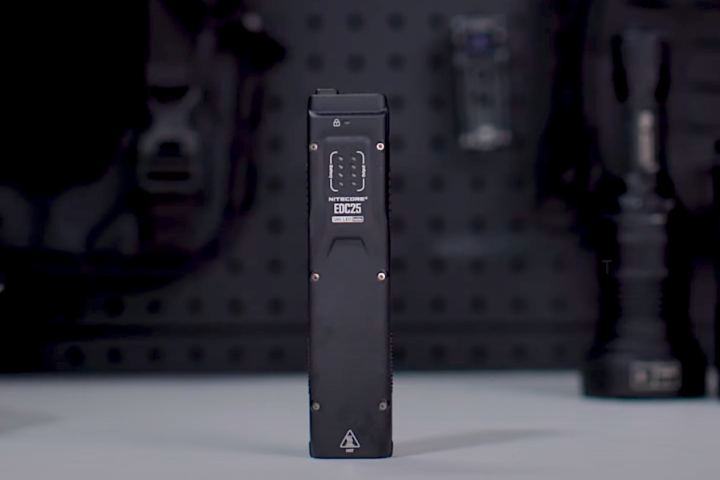Rather than fumbling with blinds, the windows of the future could change their tint or opacity on demand to keep out unwanted heat, light or attention from nosy neighbors. We've seen plenty of different techniques over the years, but now a team from Princeton has developed a self-powered "smart window" system that uses a transparent solar cell to harvest UV energy from sunlight.
The Sun gives off a cocktail of different wavelengths of light: there's the visible light that allows us to see, the infrared rays that warm the planet, and UV radiation that's damaging in high doses. While different levels of natural light and heat are desirable in a given room, UV would normally just be blocked. To improve efficiency, the Princeton team wanted to come up with a way to harness UV rays to power the system.
Smart windows are made of electrochromic materials that allow them to change their tint from clear to dark blue in response to small electric currents. To provide that current, the Princeton team developed solar cells made of contorted hexabenzocoronene (cHBC) derivatives, which can be tweaked to absorb a specific range of wavelengths. In this case, cHBC semiconductors are designed to absorb near-UV light to power the electrochromic material, and the whole system can be incorporated into a thin, transparent film that can be fitted over panes of ordinary glass.
"This new technology is actually smart management of the entire spectrum of sunlight," says Yueh-Lin Loo, an author of the study. "Using near-UV light to power these windows means that the solar cells can be transparent and occupy the same footprint of the window without competing for the same spectral range or imposing aesthetic and design constraints."
Some previous systems have used external power sources, while others have harvested energy from the infrared part of the spectrum. The problem there is that it cannibalizes some of the heat from sunlight, which a user might be trying to warm their house with.
When dark, the Princeton system can apparently block out up to 80 percent of visible light. Longer term, the team wants to develop a smart film that can be retroactively applied to existing windows, allowing a user to change the tint from their smart phone, and the system could potentially also be applied to car windows to run small appliances.
"Someone in their house or apartment could take these wireless smart window laminates – which could have a sticky backing that is peeled off – and install them on the interior of their windows," says Nicholas Davy, lead author of the paper. "Then you could control the sunlight passing into your home using an app on your phone, thereby instantly improving energy efficiency, comfort and privacy."
The paper was published in the journal Nature Energy and the team demonstrates the technology in the video below.
Source: Princeton University




